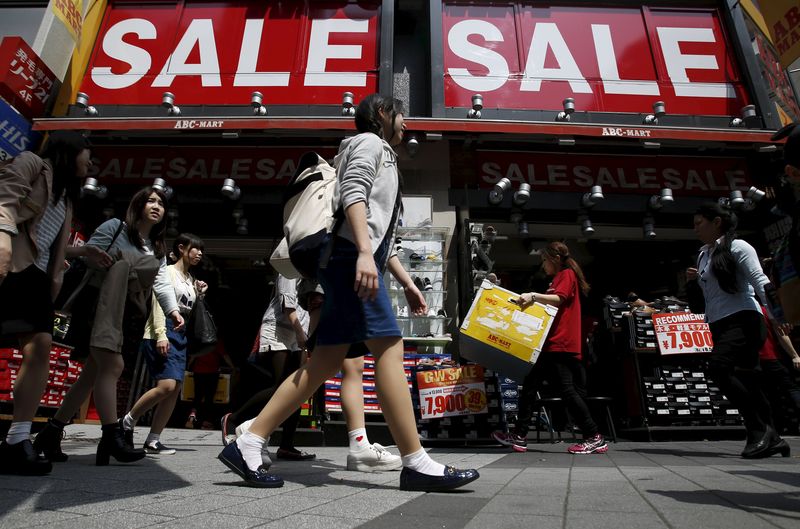By Leika Kihara
TOKYO (Reuters) - Japan's retail sales rebounded modestly in the year to April after three straight months of falls, bolstering the central bank's case that consumer spending is reviving to underpin a steady economic recovery.
The data adds to signs of improvement in consumer confidence and eases pressure on the Bank of Japan to expand its massive stimulus programme in the near term, analysts say.
Retail sales in April rose 5.0 percent from a year earlier, trade ministry data showed on Thursday, slightly below a median market forecast for a 5.4 percent increase. It followed a 9.7 percent drop in March.
The year-on-year numbers have been distorted by a surge in consumption leading up to last April's sales tax hike and a subsequent downturn after the higher levy nudged the economy into mild recession last year.
On a seasonally-adjusted month-on-month basis, retail sales rose just 0.4 percent in April after sliding 1.8 percent in March, underscoring the fragile nature of the recovery.
"Consumption is picking up but the momentum is weak," said Takeshi Minami, chief economist at Norinchukin Research Institute.
"If summer bonuses rise and a tightening job market boosts wages, we can expect spending to gather momentum around the middle of this year."
Japan's economy expanded at the fastest pace in a year in January-March, emerging from last year's recession caused by the bigger-than-expected hit on consumption from the tax hike.
The BOJ revised up its assessment of the economy last week on signs of a pick-up in private consumption, signalling that it has no plan to expand stimulus any time soon.
Household spending holds the key to the success of the central bank's massive stimulus programme, which aims to nudge consumers into spending now rather than save on expectations that prices will rise in the future.

But there is uncertainty on whether consumers will shake off the "deflationary mindset" that beset Japan for two decades. A second sales tax hike looming in 2017 also casts doubt on whether the recovery can be sustained long enough to accelerate inflation towards the BOJ's 2 percent target.